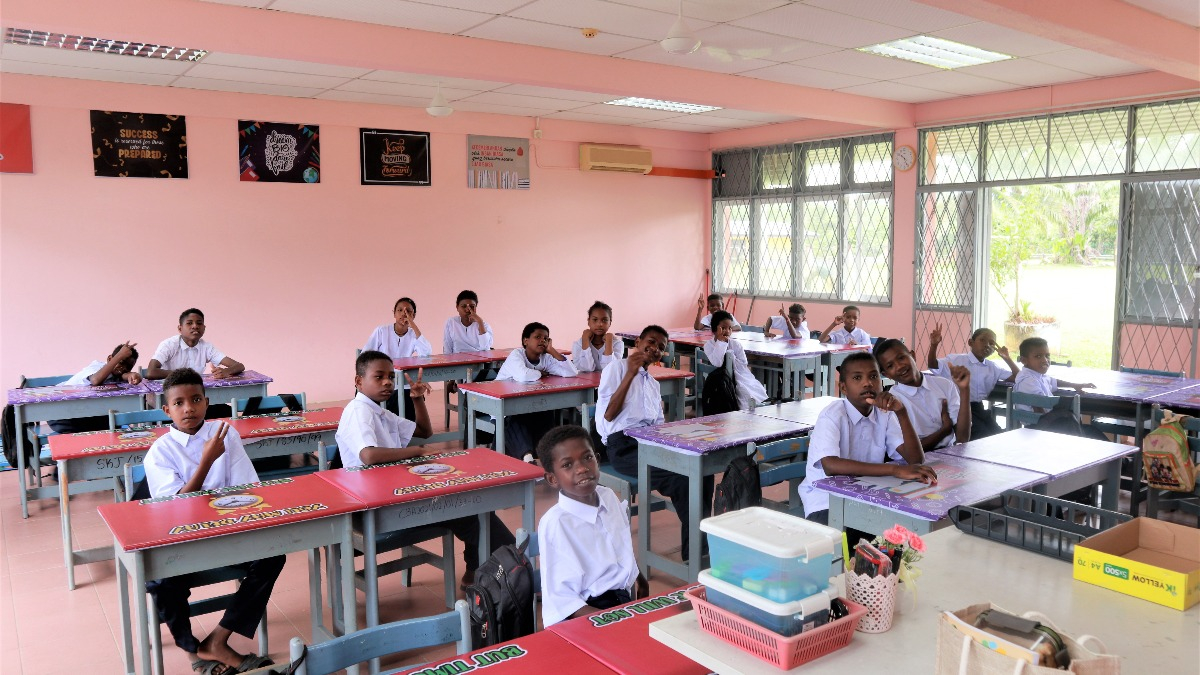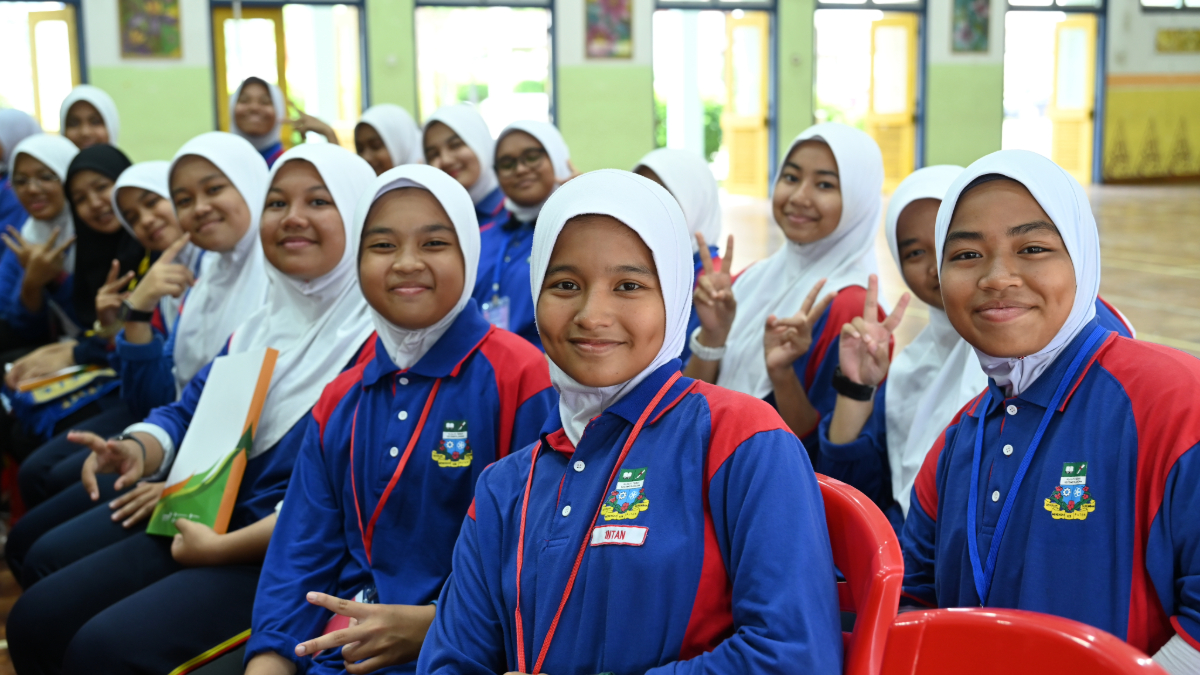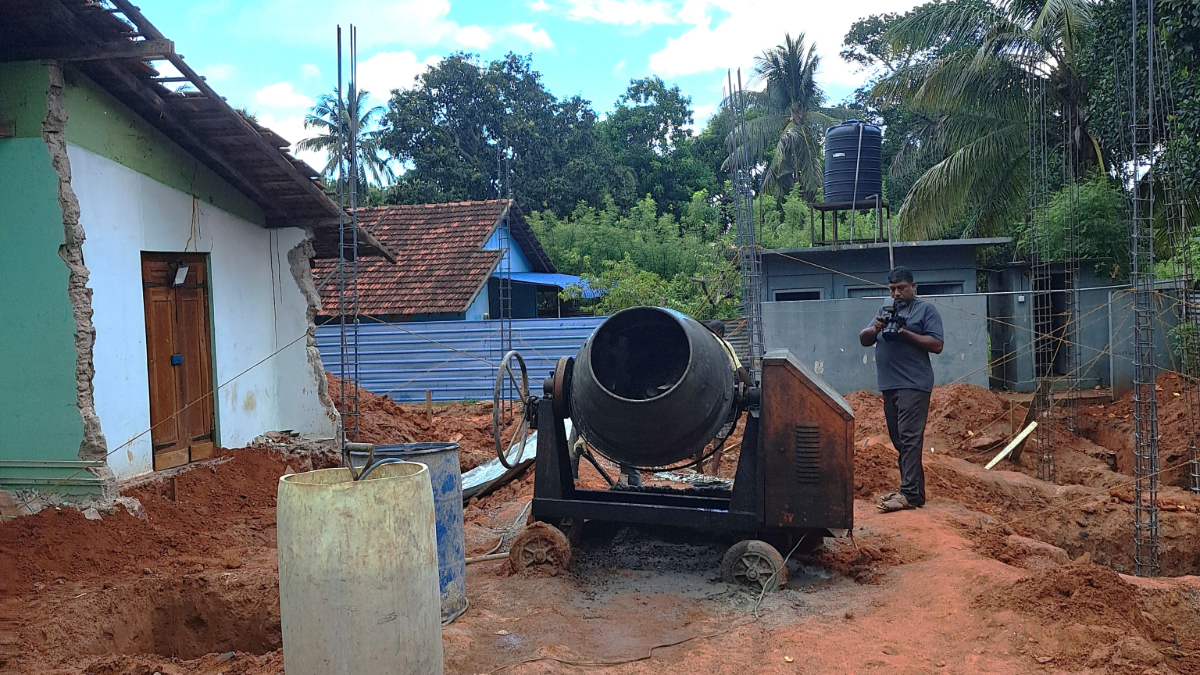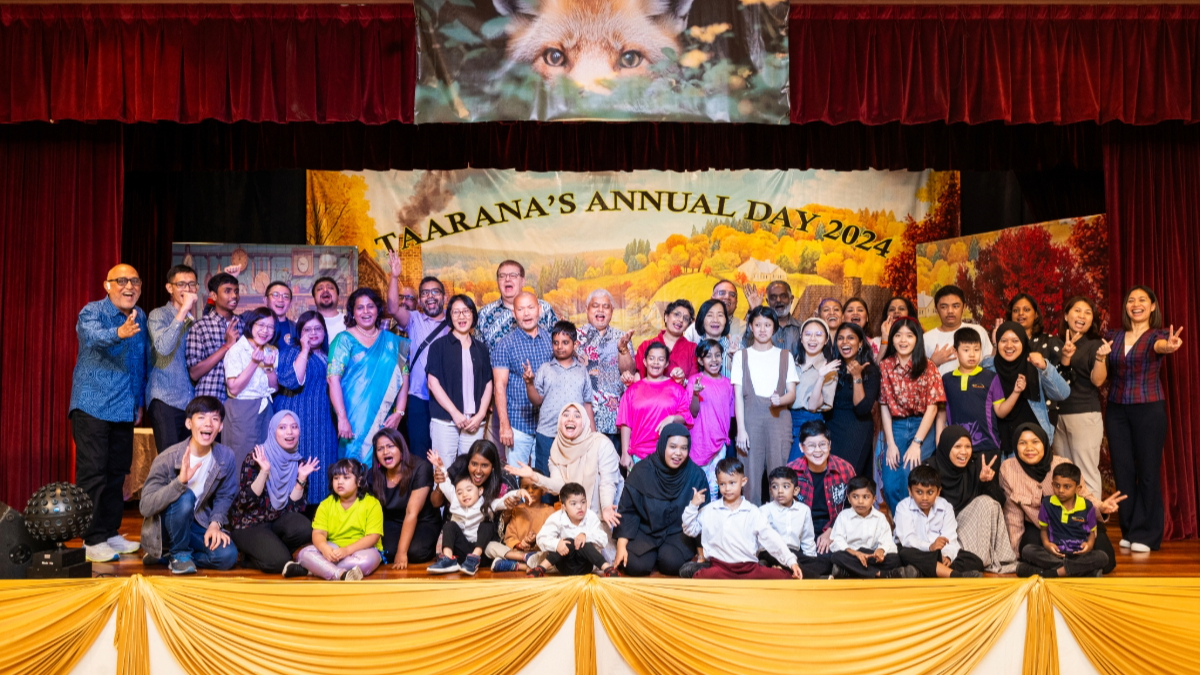A group of children sits behind their desks in Sekolah Kebangsaan (SK) Merting in the heart of Jerantut town in Pahang, Malaysia, brimming with anticipation for the day’s lessons. This setting isn’t any different than other schools – except that these students are the first of the Bateq tribe, an isolated Orang Asli (indigenous people) community, to receive an education and enrol in a mainstream school.
It is also remarkable how this group of 29 students aged seven to 15 has swiftly transitioned from a makeshift school established by RYTHM Foundation in their village to a national school – all within a year.
Last June, RYTHM established ‘Sekulah Bateq’ (Bateq School) in Kampung Kuala Atok, the tribe’s village. The remote settlement within the Taman Negara National Park can only be reached by a 45-minute boat ride.
RYTHM has undertaken considerable work in the village as part of its first Community Adoption Programme (CAP) in Pahang. In addition to Sekulah Bateq’s basic literacy and numeracy classes for the children, we have supplied essential items and implemented numerous health and hygiene programmes for the villagers.
Also read: QI Malaysia Employees Bring Love and Care to Indigenous Bateq Tribe
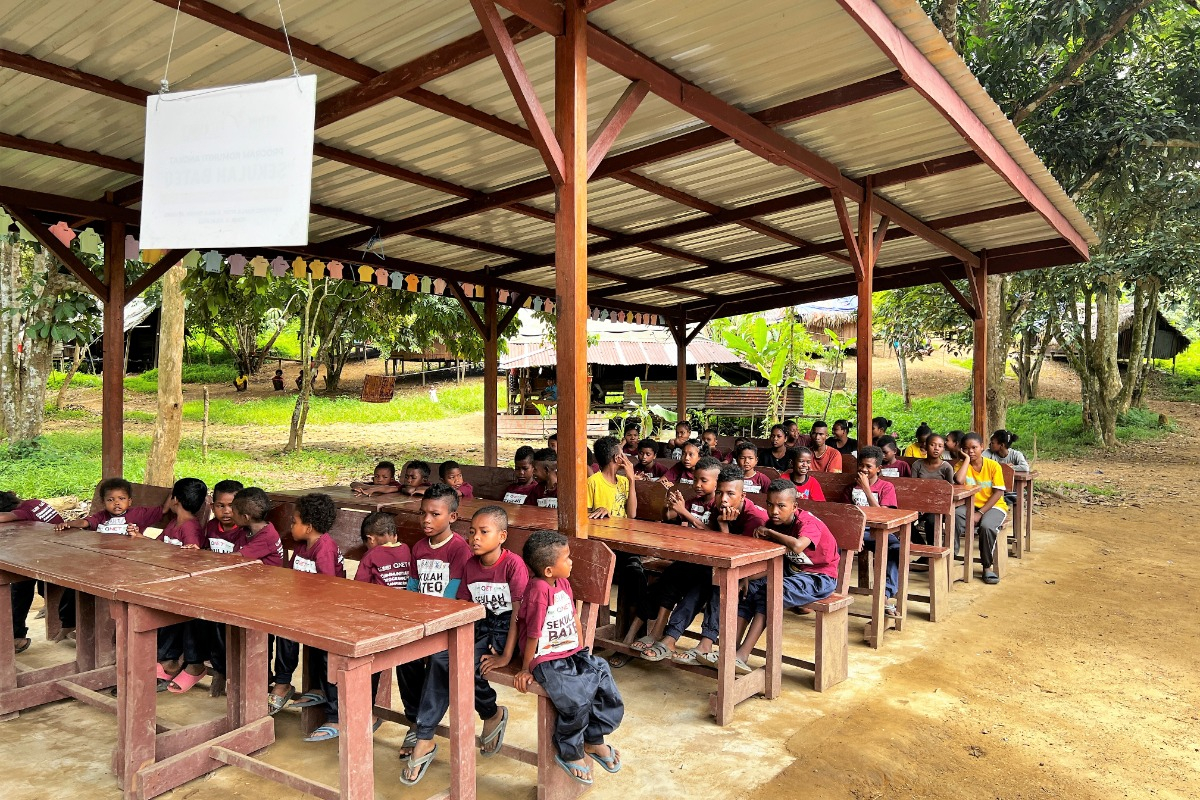
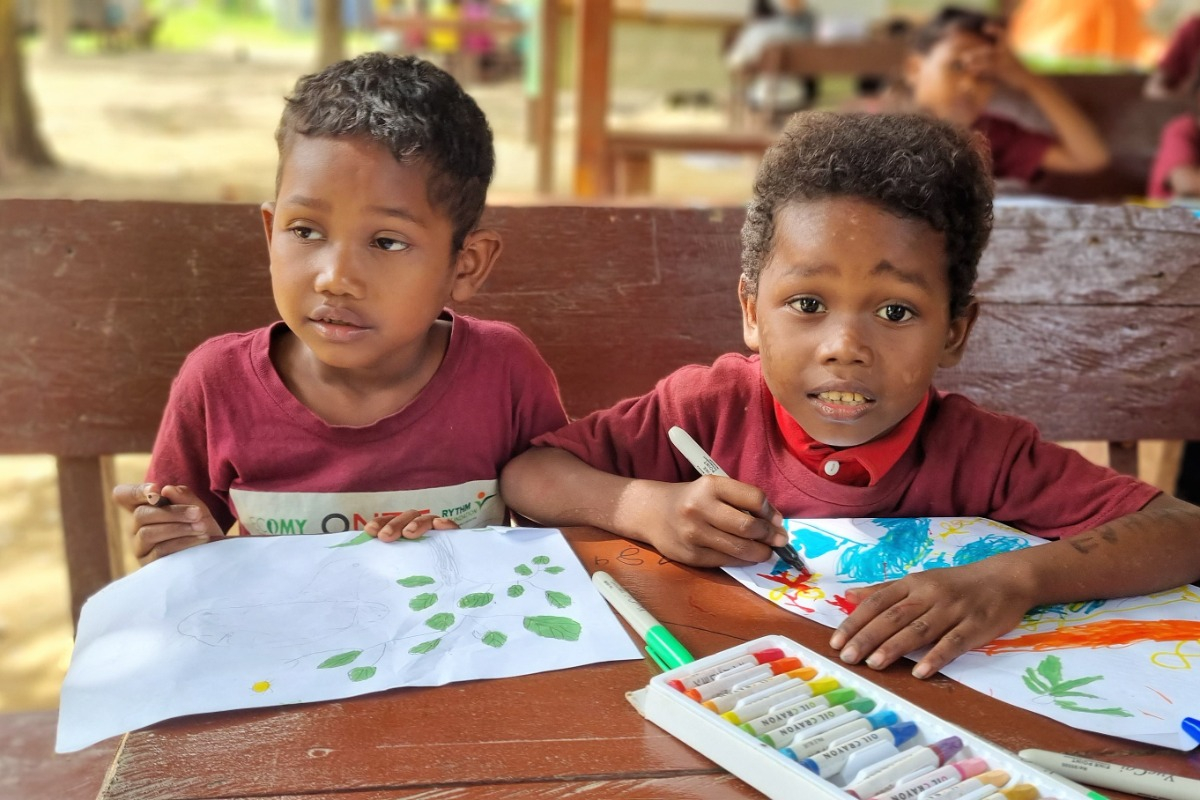
From Village School to National School
Accessing education presents substantial challenges for Malaysia’s Orang Asli children. Poverty, distance, discrimination, language barriers, and cultural differences often impede their educational success.
The statistics paint a concerning picture: over 10% of Orang Asli children have dropped out of school, citing logistical challenges and negative parental attitudes towards education (Rural Development Ministry).
In 2021, nearly 43% of Orang Asli students did not complete secondary school, with a dropout rate twice as high as the national average (Education Ministry). Moreover, only 10% of Orang Asli adults have tertiary education, compared to 30% of the general population.
RYTHM’s active engagement with the district’s education authorities enabled the Bateq children’s rapid transition to SK Merting.
Their enrolment was facilitated by the Education Ministry’s ‘Chup Badui Sikullah’ (Let’s Go to School) programme, which promotes the education of Orang Asli children. SK Merting is one of four schools in the district offering the programme.
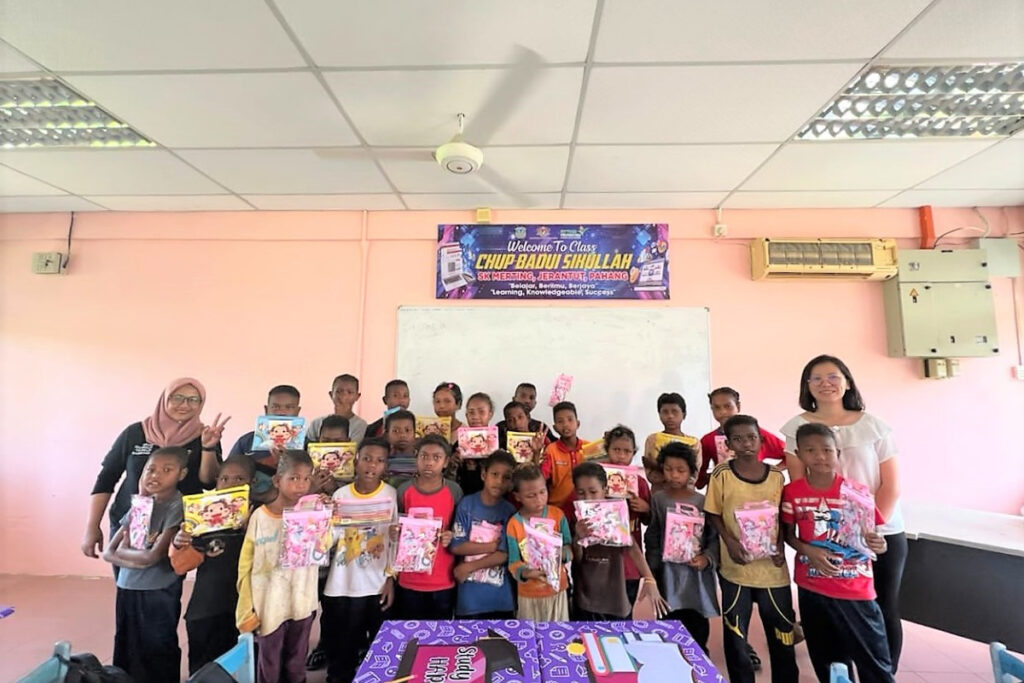
“We were thrilled when we visited Kampung Kuala Atok and discovered that RYTHM Foundation had already started a school in the village,” the school’s principal, Zakiah Mohamad, said. “RYTHM’s extensive support is going a long way in helping us make our school programme a success. Today, we have a classroom for them to start their educational journey.”
RYTHM recently provided uniforms and stationery to the children and contributed toward transforming the classroom into a conducive learning environment through the Foundation’s Gift of Life programme.
Zakiah commended the Bateq children’s positive attitude toward their new experiences. “We have not had any challenges with the kids. On the contrary, their behaviour is commendable, and they have no problem following the teacher’s instructions.
“We are fortunate to have an Orang Asli educator coordinating this programme in our school. Cikgu (Teacher) Juli is a Teacher Education Institute-trained specialist in Orang Asli education. So, we have been eager and determined to start the classes for the children without delay.”
In addition to fundamental reading, writing, and math, their teacher has incorporated a specialised module to teach them handicraft-making, music, and art.
Orang Asli Empowerment Through Education
RYTHM Head Santhi Periasamy described the Bateq students’ integration into SK Merting as a momentous achievement for the community and the Foundation.
“It is most fulfilling to see our efforts and engagements with the Bateq tribe benefitting their children,” Santhi noted. “This progress reflects our deep conviction and commitment that education is essential in transforming communities and that every child deserves a fair chance to gain knowledge and unearth their potential.
“We hope this step forward helps catalyse the social transformation of the Bateq and other similar communities.”
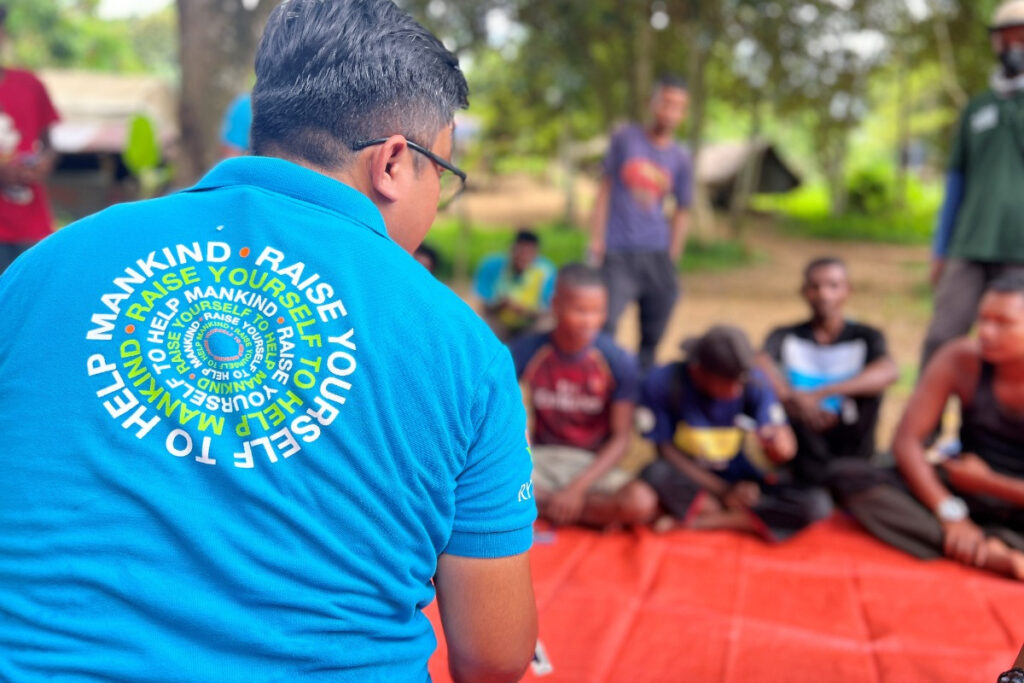
Community Adoption Programme (CAP) in the state.
While not yet integrated into the regular academic curriculum, the Bateq children will join their peers in sports and festive celebrations, fostering a deeper connection and cultural understanding among all students.
According to Zakiah, their progress will be evaluated through the typical Classroom Assessment model. The model measures students’ learning advancements and patterns while helping teachers improve their instruction methods.
“We hope these children will improve their academic performance to the same level as the regular students and ultimately integrate into regular classes. However, the Bateq community also needs to support their children’s education to improve their quality of life,” she added.

